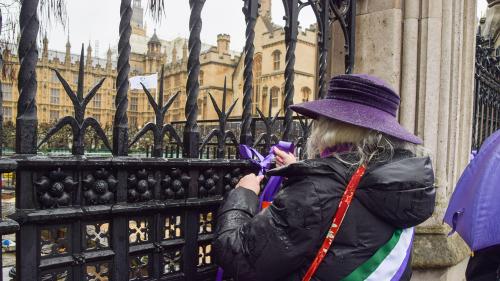
Jill Rutter
Senior Fellow
Jill's recent work

Mayoral accountability hangs on divorcing local vote from national trends
The read-across from local contests to the national polls should be dismissed.

Brexit is not done – and the UK needs to rethink how it manages its relationship with the EU
Whoever wins the election will face seven key Brexit questions.

The WASPI pension row has highlighted important lessons for policy makers
An Ombudsman report into pension age change highlights big lessons for government.
All work
Feed-in frenzy
Junior climate change Minister Greg Barker answered a topical question on the government's proposed changes to "feed-in tariffs".
Negative feedback
The Care Quality Commission recently produced a damning report into NHS care of the elderly.
If Steve Jobs did government…
The outpouring of grief over the death of Steve Jobs highlights some distinctive traits which resonate with what we need from our political leaders.
We need to talk about.... taxes
The publication of the IFS’s review of the tax system this week shows up the deficiencies in the way we make policy about taxation.
Transparency in Arm's-Length Bodies
The guide builds the Institute for Government's report 'Read Before Burning'.
Science lessons
Can policy makers learn anything from the way in which some elements of the scientific community now approach collaboration?
Sticky red tape?
Now is a good time to ask whether the Red Tape Challenge is falling short of deregulators’ expectations.
The Dhoni example
Indian captain MS Dhoni’s sporting decision to let England batsman Ian Bell bat on after being given out has lessons for our political system.
The incredible and the unbelievable
The publication yesterday of Ipsos Mori’s Veracity Index again shows the low regard in which the public hold ministers and politicians.
The importance of being insubordinate
When Tim Harford came to speak at the Institute last week he emphasised the need for more experimentation in policy making.